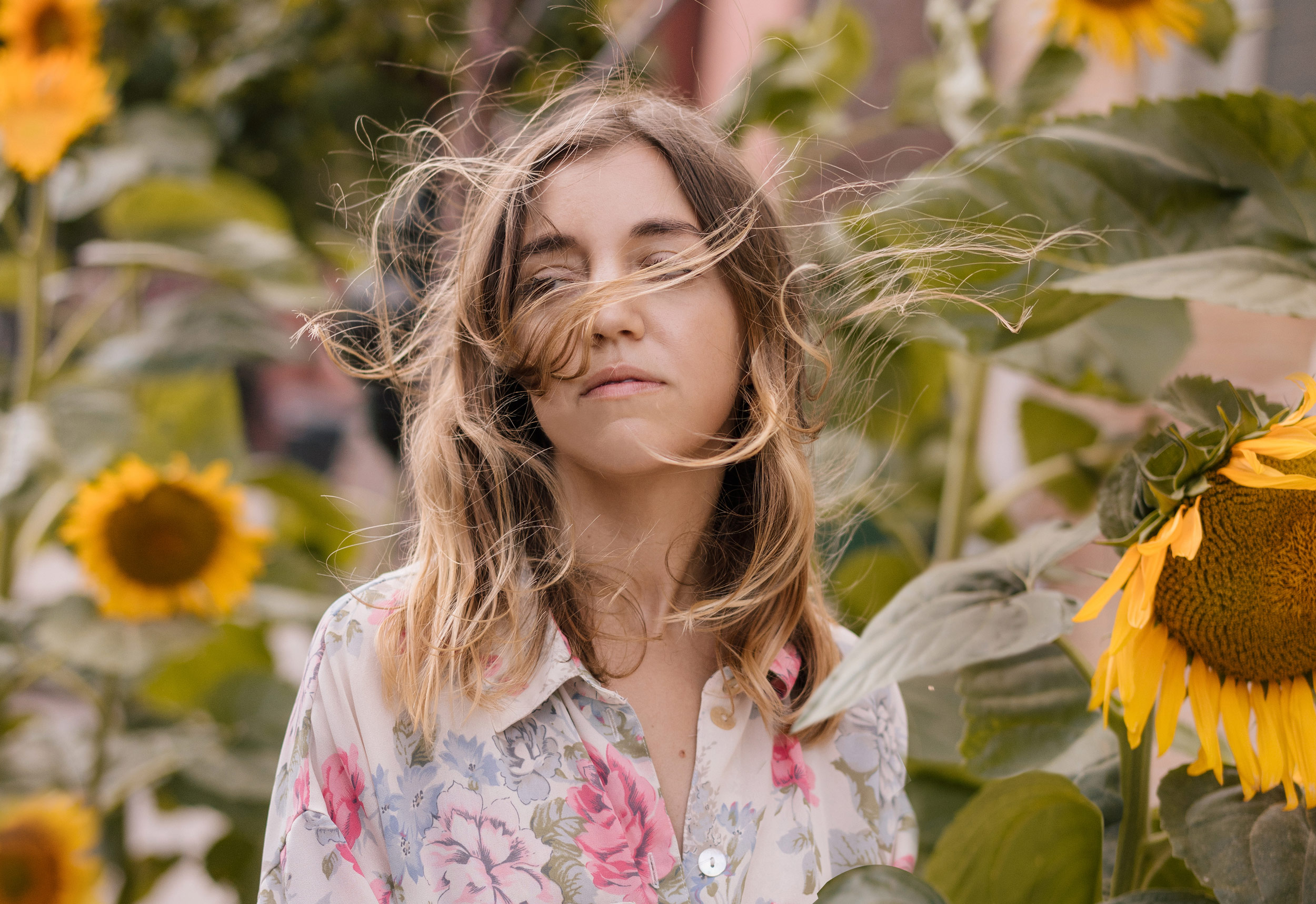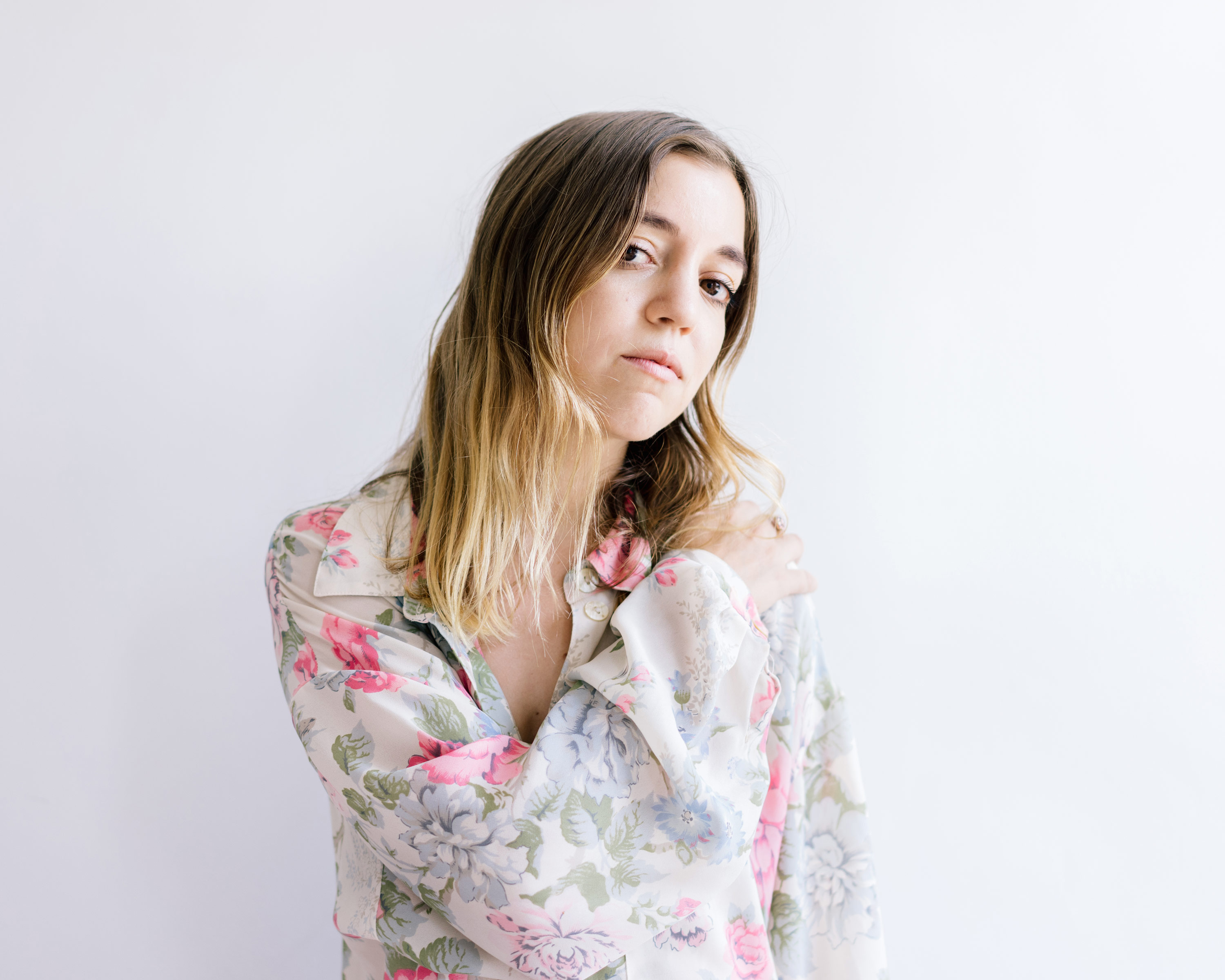
- Interview by Tina Essmaker July 25, 2017
- Photography by Julia Hembree
Leah Goren
- illustrator
Illustrator Leah Goren was surrounded by creativity growing up in Southern California where her artist mother encouraged her to explore the arts from a young age. Here, Leah recalls her discovery of illustration in college, how she made the leap from college student to full-time freelancer, the mentors who helped shape her trajectory, and why, at the end of the day, she’s seeking happiness above all else.
Tell me about where you grew up and how your childhood influenced your ideas about creativity and what was possible. I grew up in California in a city called Carlsbad, which is near San Diego. My mom is an artist; she was a teacher my whole life and never exhibited her work beyond the occasional local show, but she’s been making things across mediums for as long as I can remember. She went to Cal Arts for painting and then taught seniors before she began teaching middle school students. From birth, we were in the backyard painting together. We made all kinds of things, and that experience was formative for me.
So creativity was a pronounced part of your childhood and something that was actively developed in you by your mom. Yes, but at the same time, where I grew up was fairly conservative and there wasn’t much around in terms of arts and culture. It’s Southern California, so there were surfers and skaters and the football team and cheerleaders. The arts program in my school was very lacking, so anything that I explored was outside of school.
By the time I got to high school, I realized this was something I wanted to take more seriously as a potentially viable career. But I never thought about what I wanted my job to be or how I would make money. I did two pre-college programs while I was in high school: printmaking and drawing. Then I started to take figure drawing classes at community college, and then I applied to art schools from there.
Was there an “Aha!” moment when you decided on this path and realized you could make a living doing it? I think it was when I was 15 and went to California College of the Arts for the summer program. Being out of the city I grew up in and being in this cool place in Oakland surrounded by kids who wanted to do similar things to me was really cool. The campus was filled with old art studios and the professors were great.
That’s an awesome opportunity. Yeah, I think I found it and told my mom I wanted to do it. Of course I was lucky enough that my mom could pay for it and send me there.
Awesome. Tell me about your years in college and when you decided to focus on illustration. I moved to New York to go to Parsons in 2006 when I graduated high school, but I was really sick—I was anorexic. After a month, I moved back to California and went into residential treatment for a while. I phased out of that and slowly restarted my life. I went to community college, took classes, and lived with a friend.
A year later, I moved to LA to go to Otis College of Art and Design. I knew I wanted to start that trajectory back up and return to New York, but it took time. At Otis, I took foundation classes like color theory and the fundamentals of drawing where we learned to draw figures in a very technical way. I had a vague sense that I wanted to go into fashion, but then I realized that I liked drawing so much and the students who were going into fashion—well, I didn’t want to hang out with them, so I asked myself what else there was that I could do. I really didn’t know what illustration was. I figured I’d be a fine artist.
When I applied to schools in New York, this girl who was going to be my roommate, who I knew from a friend, said to me, “What about illustration?” I thought, huh, I’ll have to look that up. So I switched my major last minute and when I moved to New York to go to Parsons, I started to take illustration classes.
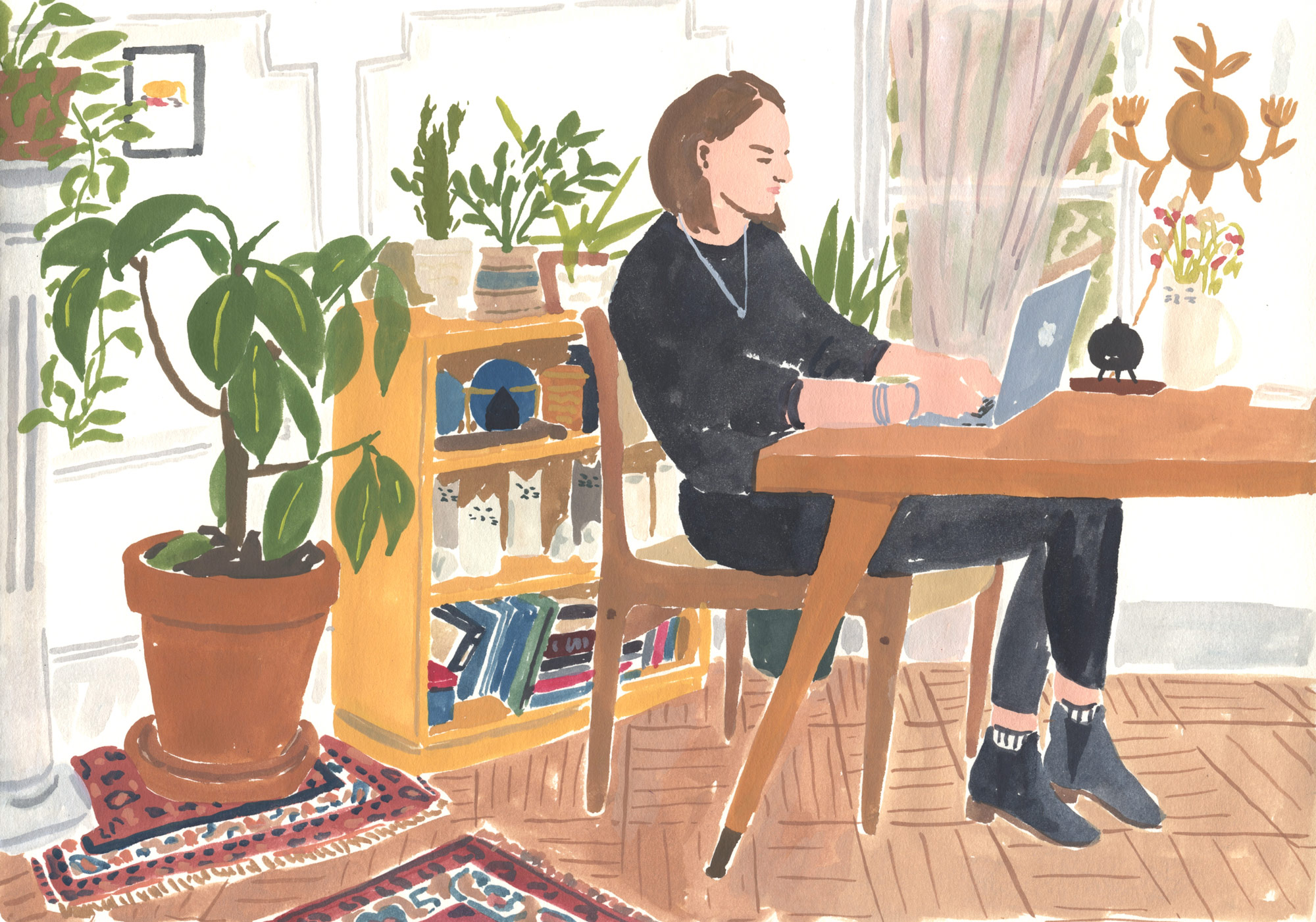
“…I realized this was something I wanted to take more seriously as a potentially viable career. But I never thought about what I wanted my job to be or how I would make money.”
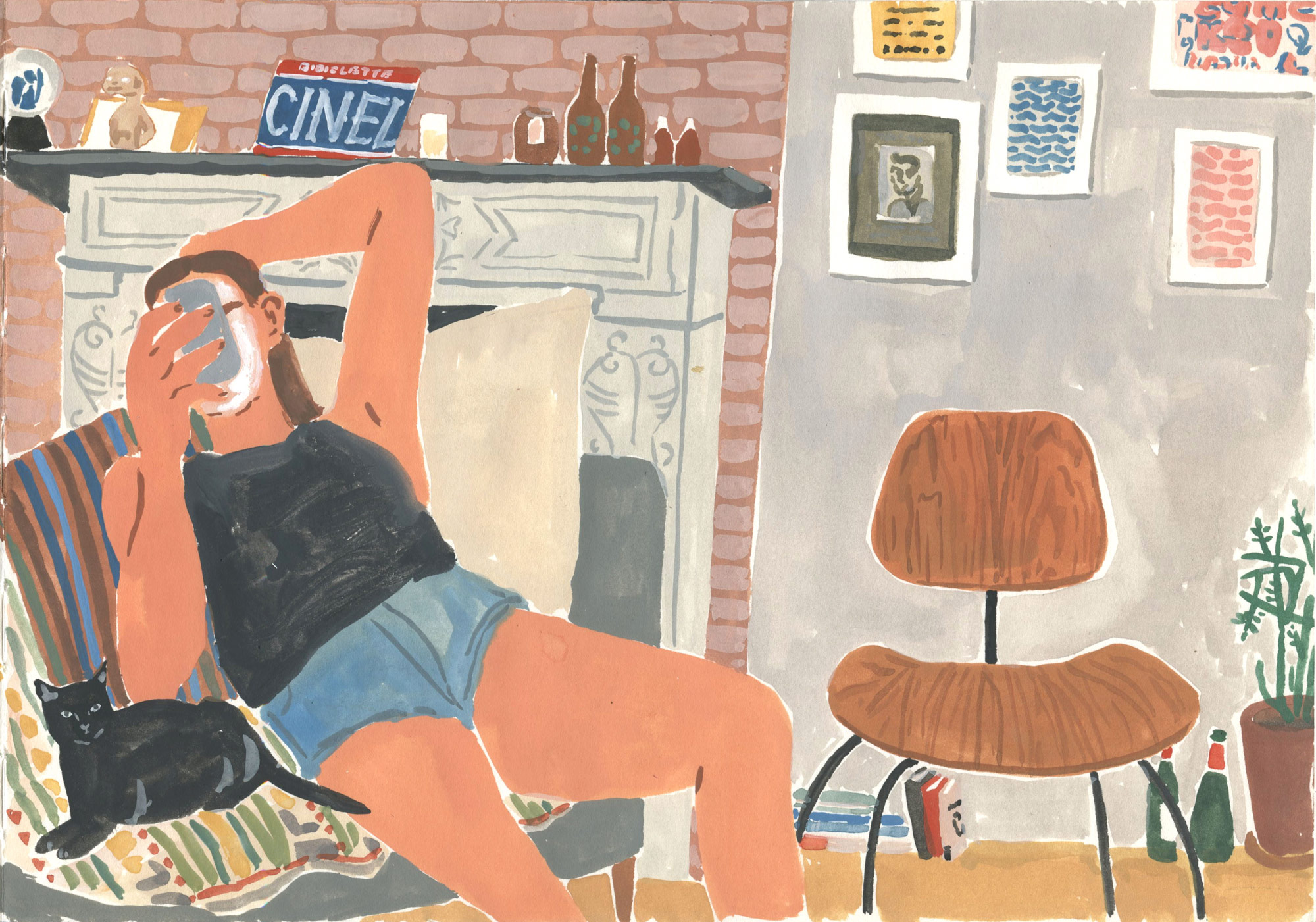
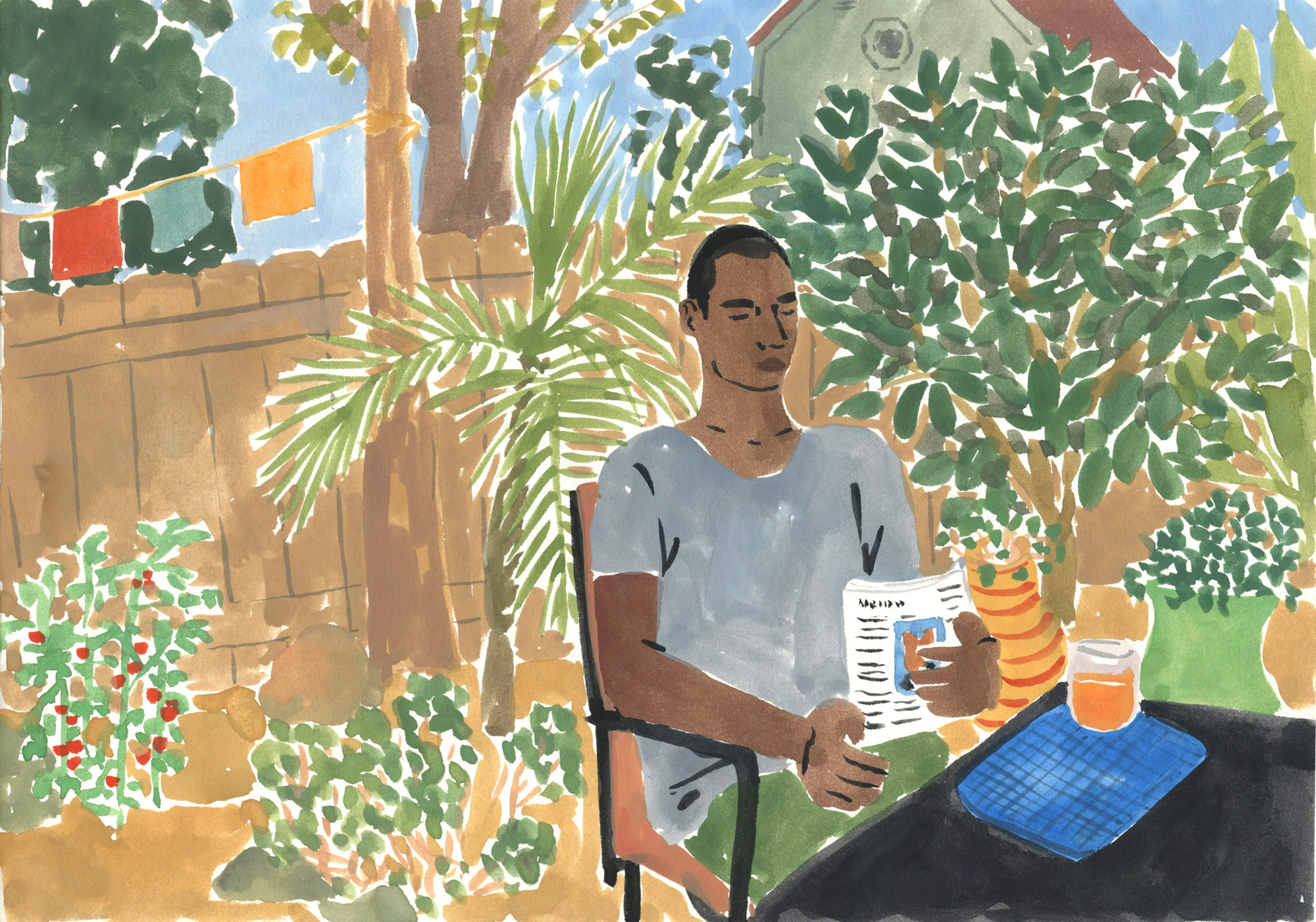
What were your first years out of college like, especially since you went straight into freelancing? I graduated in 2012, and I had a different experience than some people. At the time, fashion and style blogs were big on the internet and people were into the idea of handmade things.
I opened an Etsy store and I made products on my own while I was still in school because I always wanted to make things. It wasn’t enough to have a hypothetical assignment. There were actual things I knew how to make by myself and it felt more real to take my work and print it onto fabric and then sew it into bags or clothing. I started to make printed products and sold them in my shop. That took off on the internet, which felt a lot less saturated back then. I made my income from my Etsy store by the time I graduated. That helped my work circulate online and I started to get the kinds of jobs I wanted.
Making products and allowing clients to see how they could use me helped me get jobs. The summer after I graduated, I had my first big job for Anthropologie come out. It was a line of ten different clothing items, like skirts and sweaters. It was exciting to have that happen right out of school. From there, I’ve worked on my shop less and less each year and taken on more freelance work and personal projects that I’ve wanted to do.
What was the biggest challenge in starting your business? Did you have anyone to consult on the practical things? I think I learned some of it in school. But there were teachers I became friends with during school and they became mentors to me. I’m still friends with some of them. For example, Julia Rothman was one of those people.
Oh, we had her at a live show. She was so much fun! Yeah, her and I are good friends now, but I met her when she came into one of my critiques at school. After that she was looking for an assistant and she’d never had one before. I applied and she remembered me, and I started working for her. I did that for a few years. She eventually said to me, “You’re too good. We should just hang out and work on projects together.” (laughing)
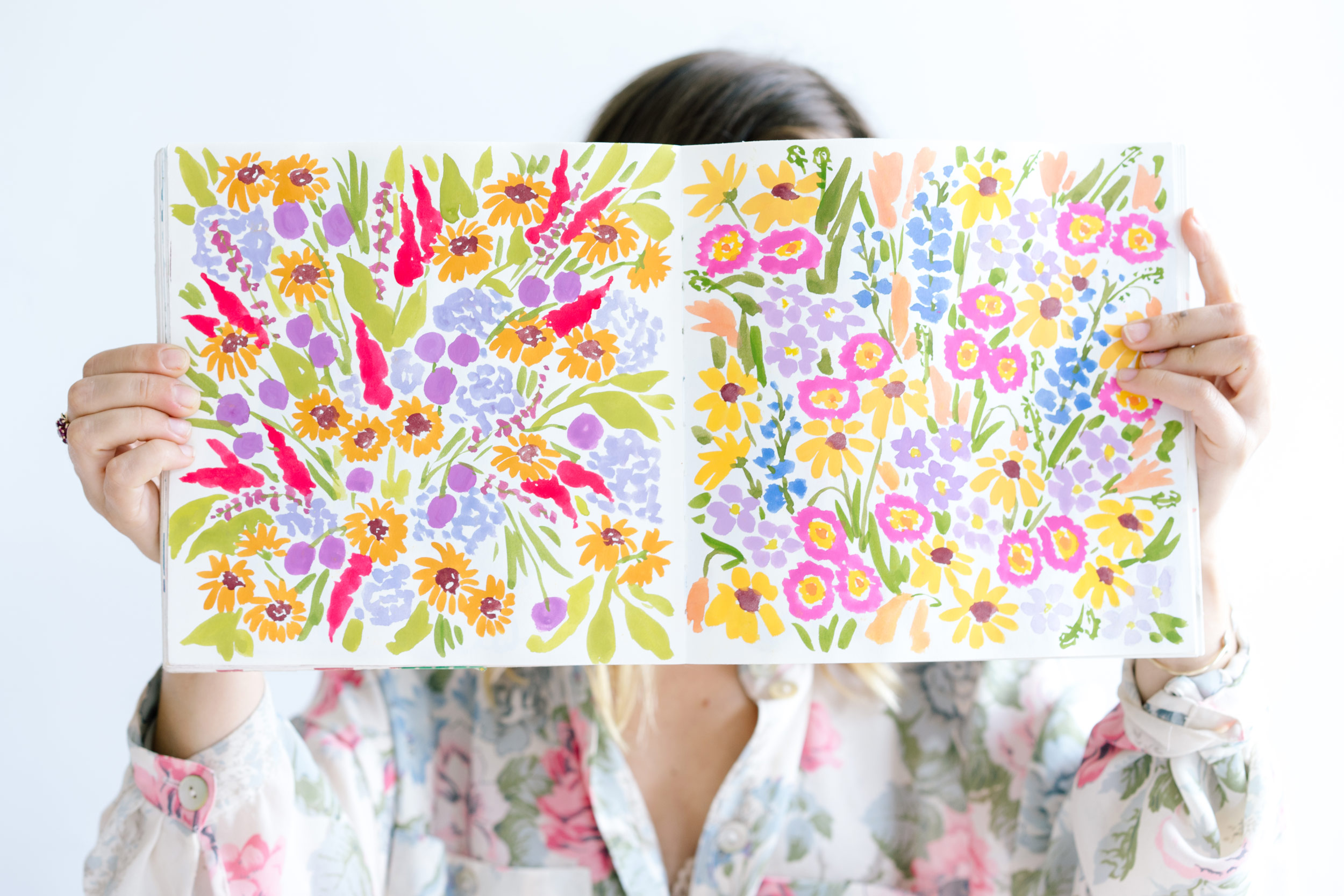
“The whole reason I do what I do now is because I was once this kid in high school who wanted to have a sketchbook and record things because that’s what I loved to do.”
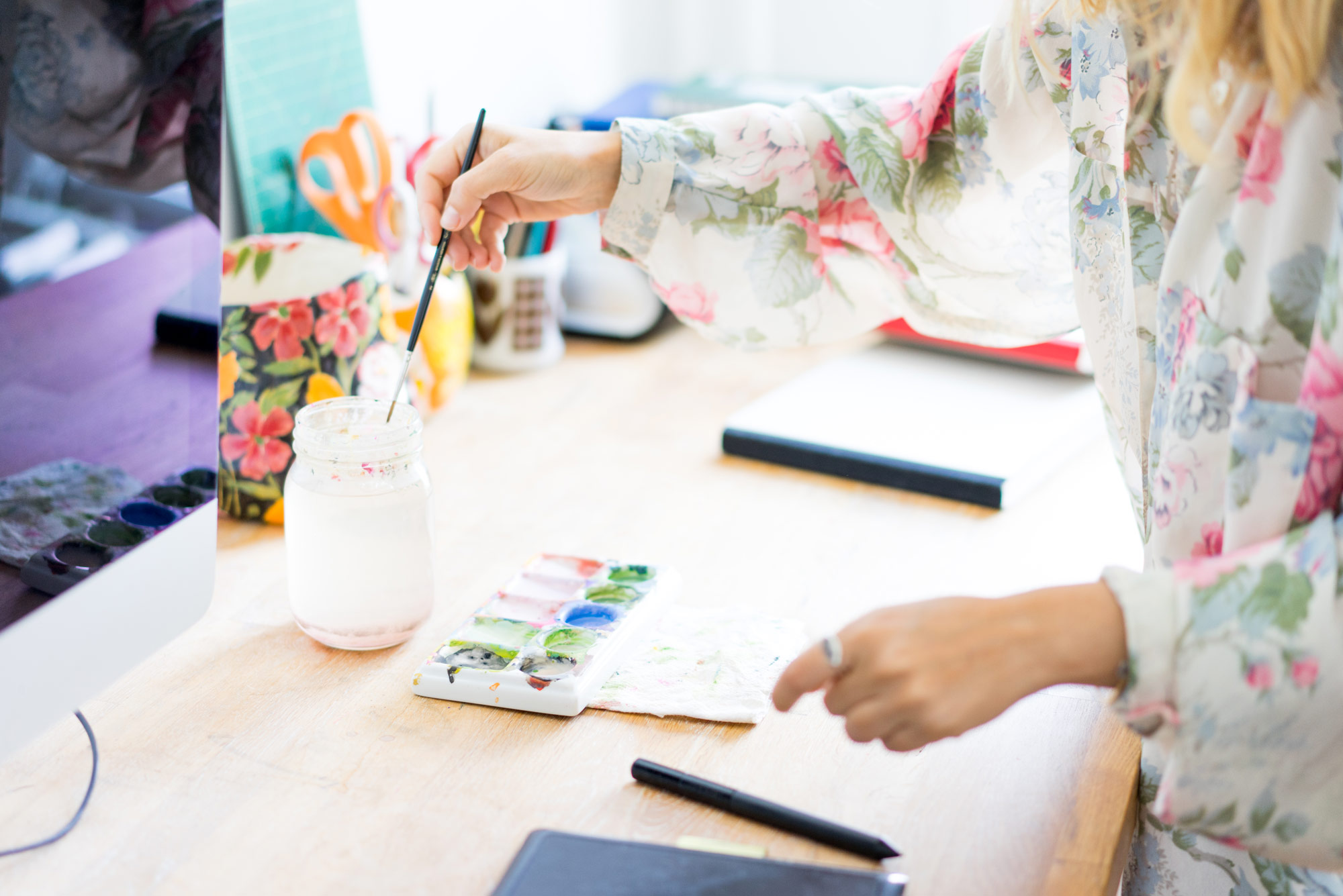
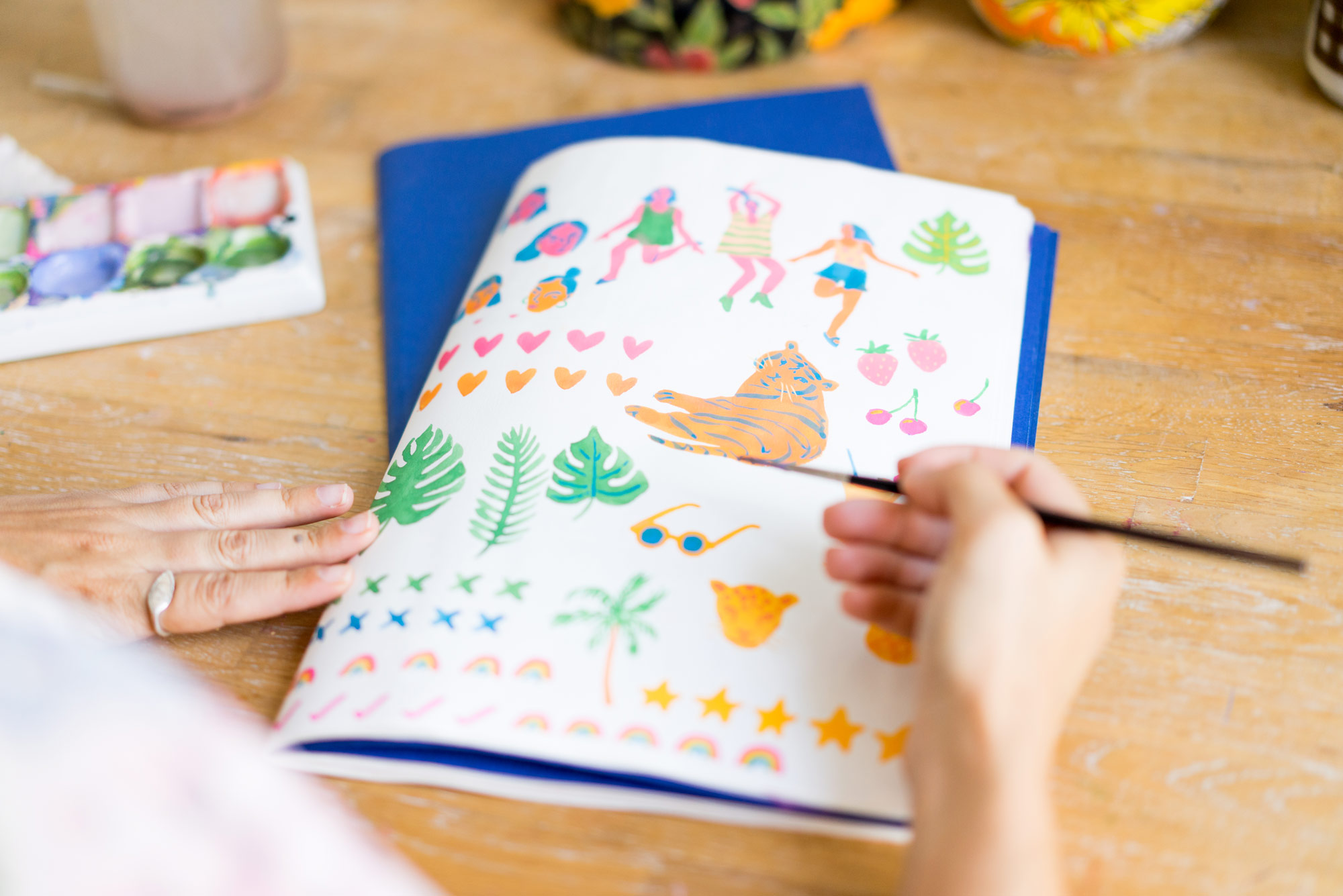
So you inadvertently learned a lot from working with her. Oh, yeah. Josh Cochran was another one of my teachers who I still keep in touch with. I’ll email him and say, “Hey, what should I charge for this?” Having those connections out of school was great. Those were the people I turned to if I had questions. And a lot of times you get a new kind of project and who knows what you’re supposed to charge. Now, I feel like I have a much better grasp on everything overall.
What’s your approach? Any advice you can offer on money and budgets? It’s hard, especially because I feel like I’m a young woman who can be taken advantage of. I know that’s what every woman says, but it’s true. It’s taken years for me to get my confidence up about money. I used to stress out so much about being direct and just asking for things. But I think if you ask for a little bit more money each time, you’ll get it. If you overshoot and they talk you down, than at least you’ll land on a number that you’re okay with.
That’s helpful. I think it’s easy to undersell yourself, especially when you’re starting out and there’s pressure to get the work so you can build your portfolio. Do you make compromises to get the work you want? And it’s easy to become resentful and feel like you’re giving too much. Recently I’ve tried to ask myself, is this worth it for me if I get x amount of money for this amount of work and this is how it’s being used? Does that feel okay? Usually if it feels okay, then it probably is.
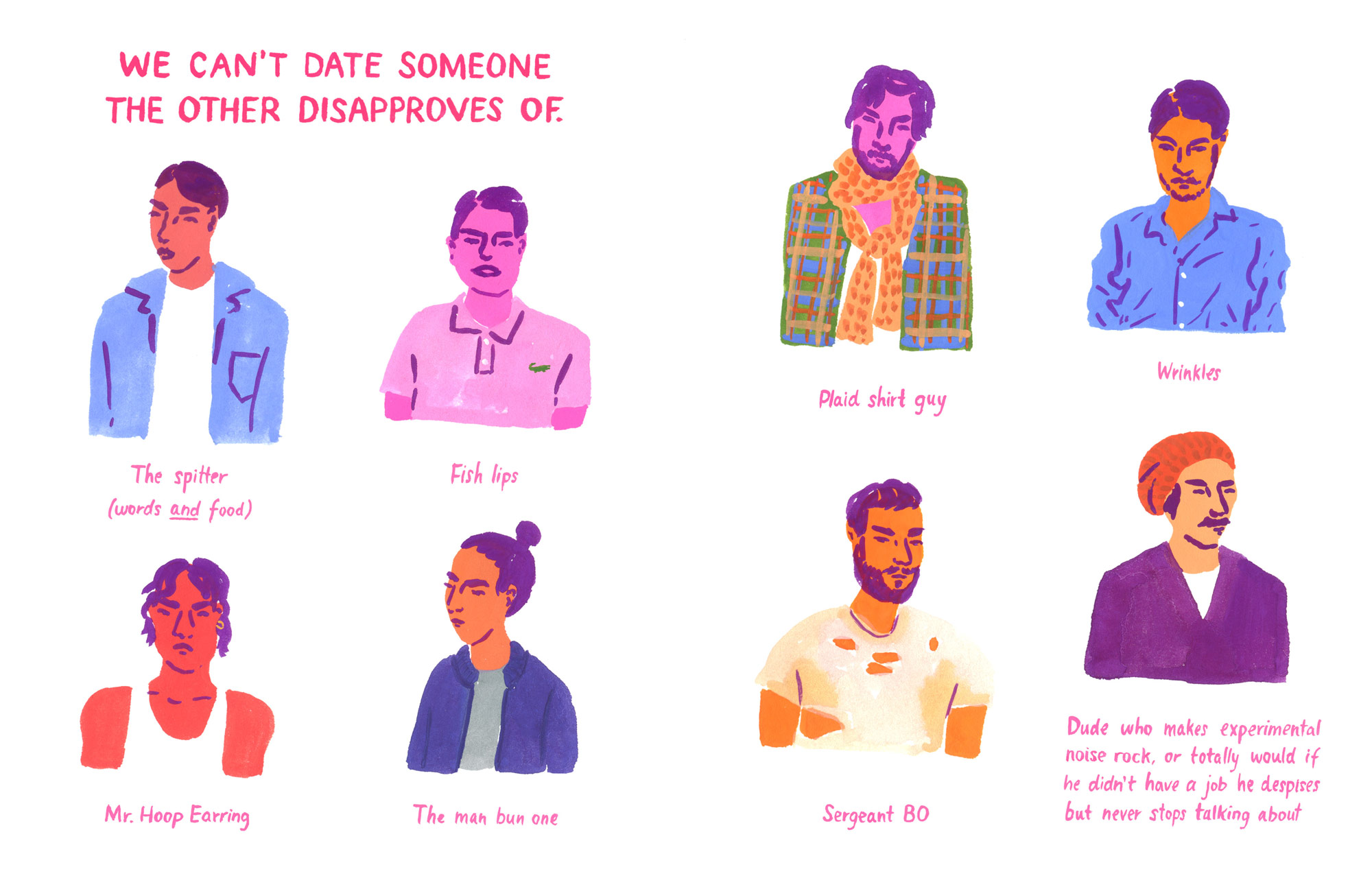
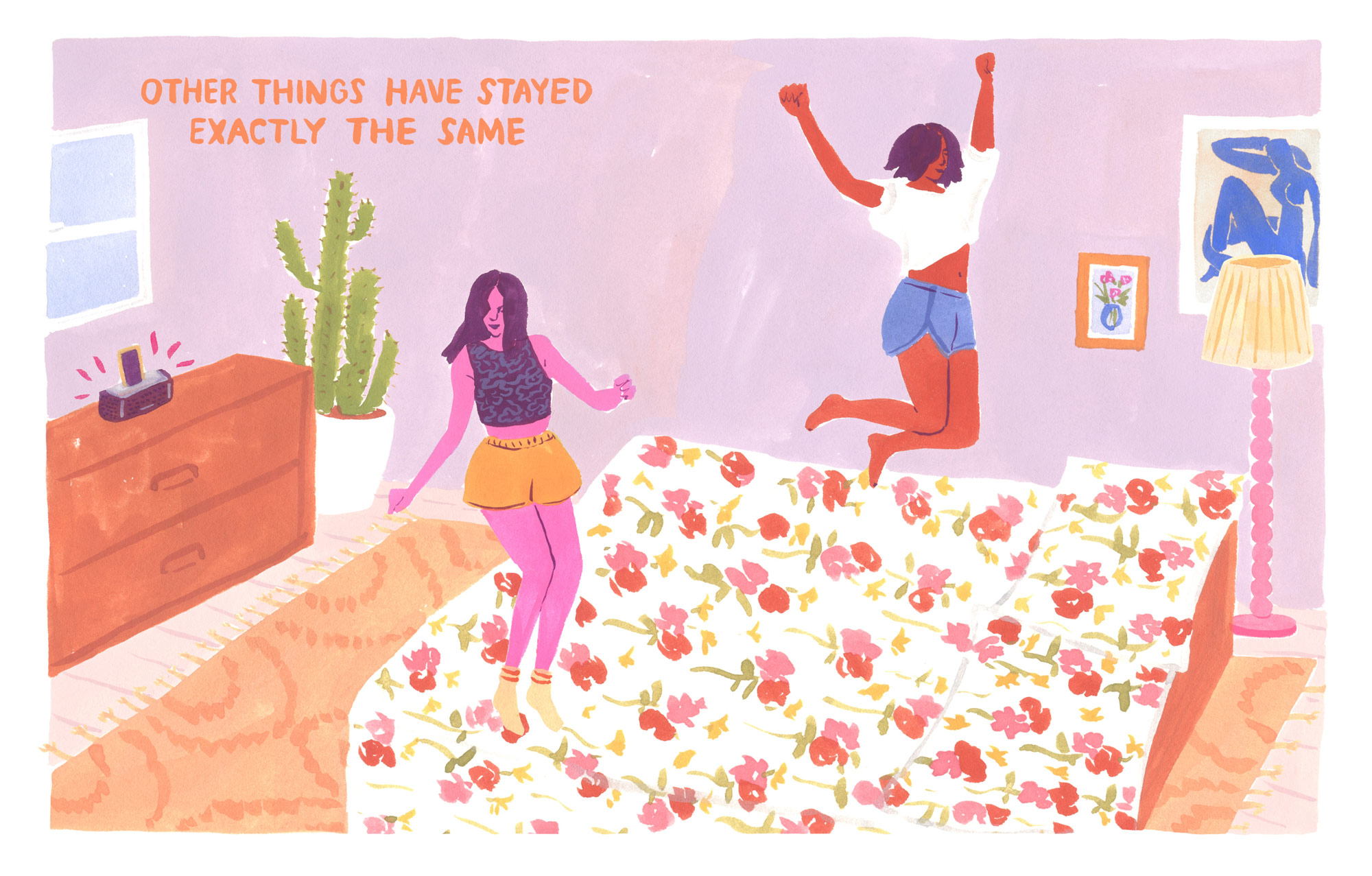
“…I’ve tried to ask myself, is this worth it for me if I get x amount of money for this amount of work and this is how it’s being used? Does that feel okay? Usually if it feels okay, then it probably is.”
I want to talk about your style, especially the ladies you draw. Was that a conscious evolution for you? I’ve always liked figure drawing and I’m interested in women because they’re interesting looking. I like fashion and people’s personal styles. When I draw patterns, that’s a big part of my work and drawing girls and the clothes they wear makes a lot of sense. I don’t know if it was ever conscious. I draw what I’m interested in.
My work isn’t necessarily a statement. People often ask me about my choice to draw women with all different body types and if I’m making feminist art. It’s like, well, it’s not not feminist, but I’m not choosing to draw all different body types because I’m trying to make a feminist statement. I just have the knowledge inside of me that, yes, all of these body types exist. That’s a fact.
Are there any insights you can offer to someone who feels stuck trying to find their style? Try everything and make a ton of work. There isn’t any other way to do it. When I look back at my education I can think of pivotal moments when teachers told me something that pushed me in a certain direction that helped a lot. I used to draw in pencil and Josh Cochran told me I should go buy a certain kind of brush and only use that. I did, and that’s the brush I use still.
André De Loba was another teacher I had, and he was incredible. He taught me a few things in Photoshop that changed everything for me.
It’s all these little moments, but you have to have your eyes and ears open to everything. On top of that, it’s really about putting in the work.
I would also say that, even though it’s not necessary, learning technical drawing first and really knowing how to draw the figure or an object realistically before you go and abstract it in your own way can be really helpful.

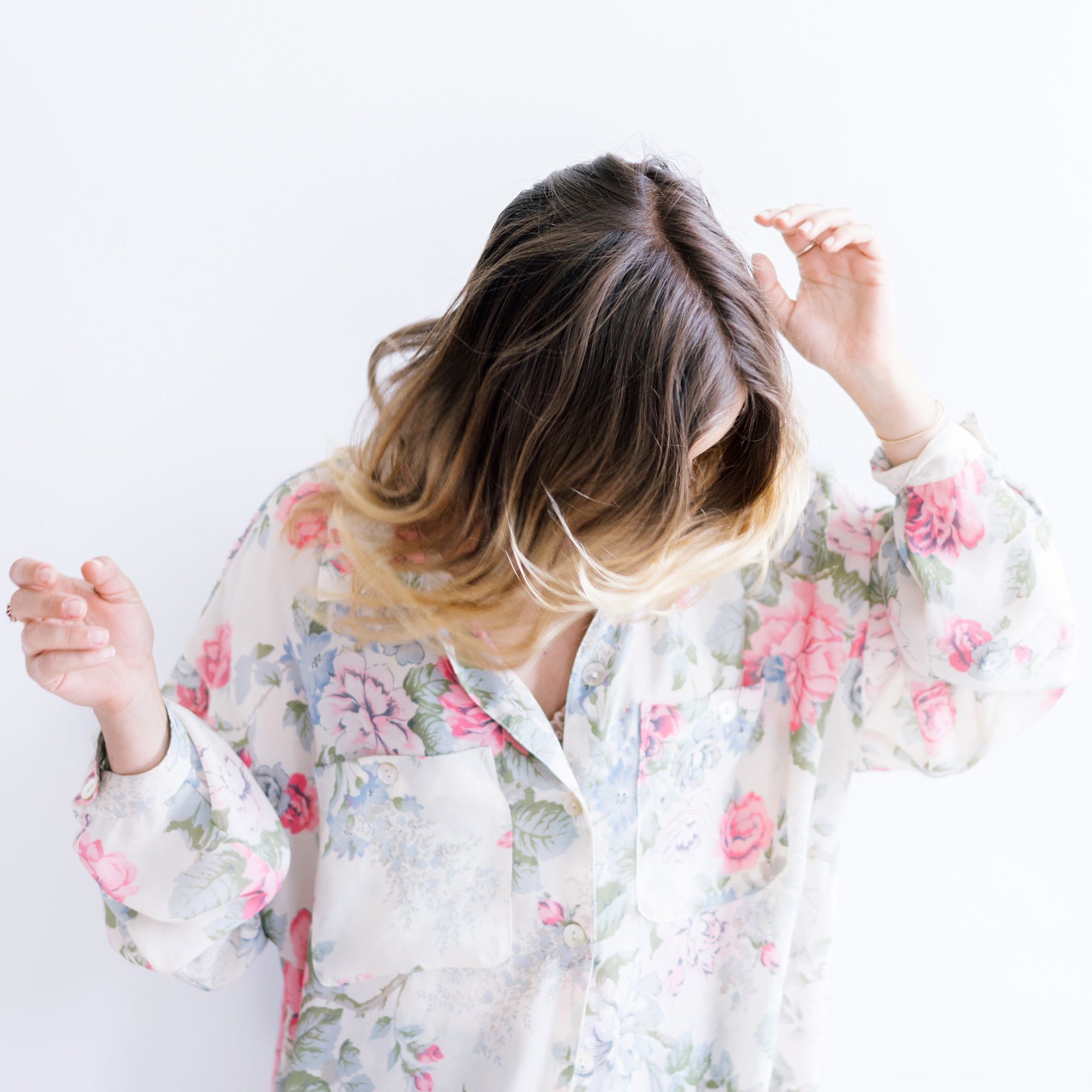
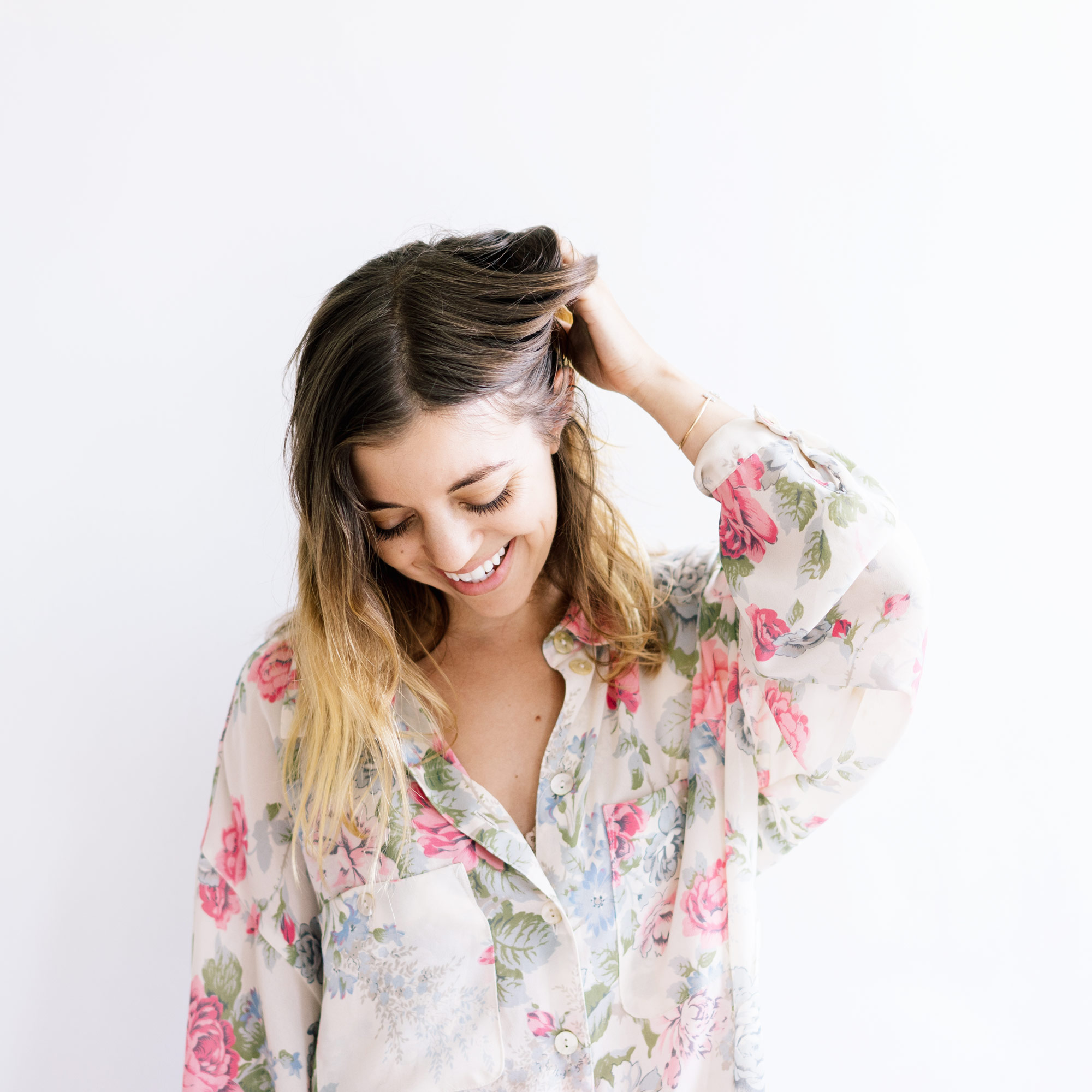
Do you feel a desire to contribute to something bigger than yourself through your work, or a desire to give back? I don’t have a timeline for what I’m doing, but I think it’d be nice to do another book that’s on something that is more personal to me, or personal stories by girls. I’m proud of the book I did, but it was a very specific prompt for a specific audience—for a girl to give to her best friend. It was my first illustrated book and it was a good project to start out with.
What I like about what I do is that girls can feel connected to my drawings. I have that experience when I look at other people’s work, too. That’s why I do what I do, but I think it could always go deeper—something more narrative that resonates with people on a more emotional level.
At the same time, I hope that one day I can detach and not use Instagram so much and live somewhere and have a kid and a life that isn’t so commercial.
But as an artist, you represent yourself, and you have to remind people that you’re there. You have to promote yourself on social media, right? Yeah, I don’t have to, but I have to. Increasingly, a lot of jobs I work on are just for Instagram. Or I’ll get an additional amount of money to post a project I did on Instagram as part of the whole thing because it’s developed for social. I probably wouldn’t get that work if I didn’t have so many followers. It’s kinda gross, but it’s true. I feel kind of uncomfortable about it, but I do it because it’s still a commercial job and it’s not much different than me doing a client project that I’m proud of and want to post anyway. But it’s funny because I see others who seem excited to post sponsored posts on Instagram. I would never aspire to have that kind of life.
But it’s a dance. You do have to make a living. I don’t do anything I’m not comfortable with and if it doesn’t relate to my illustration work—if it’s just hawking a product—I won’t do it. It’s definitely a balance.
It’s crazy how social media has changed the way we work and interact with clients. It’s been a rapid change, too. This wasn’t happening when I was in school or when I graduated.
Considering that you get to do the work you enjoy and that you’re living in New York and paying the bills, do you feel creatively satisfied? I don’t know if I ever will. I think there’s always a drive to make the next thing. Some days I do feel creatively satisfied. A couple days ago I did some good work and started to do a drawing just for myself and I was really feeling it, and I told myself, “Today was a good day.” But that’s not every day. I just want to keep building on what I do. No matter how much I do, there are always ways to continue to push or make more of what I’m already doing.
For instance, I’m doing ceramic pieces, which I can get burnt out on when I spend too much time in the studio. When I think about the potential of what I could make if I had endless time to put into those pieces, I realize that I haven’t started to do any of it.
You do client work and self-initiated projects. How do the two influence once another? I don’t know. They’re not necessarily related, although I do work in the same style for both. If I’m just messing around and doing whatever, it doesn’t matter what I do. The other night I watched The Office and drew what I saw on TV with a brush pen because it’s what I felt like doing. It didn’t necessarily look like my work and I wouldn’t post it on Instagram, but it’s fun to do stuff because you want to.
But we feel like everything has to be post-worthy. Yes, we feel like everything has to be for something, but, for me, the best moments are when I make work or see a piece come together and think it’s good, but maybe it’s just on printer paper and will go in a stack of other paper and be thrown away. It doesn’t have to be for anything. A lot of it is about keeping up momentum and feeling like I’m excited about drawing. The whole reason I do what I do now is because I was once this kid in high school who wanted to have a sketchbook and record things because that’s what I loved to do. Nothing was for anything then.
I love that. I have one last question for you. Have you thought about the kind of legacy you’d like to leave? I don’t know. I always think that when I’m older maybe I’ll be an actual artist and make work like my mom does. I would like to write more books as I mentioned, but I hesitate to say that because I don’t know what’s going to happen. I hate to say something and then not do it because then you get that disappointed feeling, even if it wasn’t necessarily something you wanted to do to begin with. But books are one idea I have in mind.
I hope that as I get older, the commercial aspect won’t matter as much and I can continue to make things I like and have a life. I still have to make money, obviously, but I would like to value the work I do for myself more and more.
I don’t think I need to leave anything behind for humanity. That’s a whole other existential question. That just doesn’t seem like it matters as much. I want to do things that make me happy.
“I don’t think I need to leave anything behind for humanity. That’s a whole other existential question. That just doesn’t seem like it matters as much. I want to do things that make me happy.”
